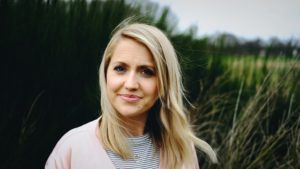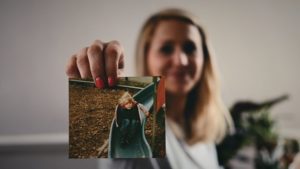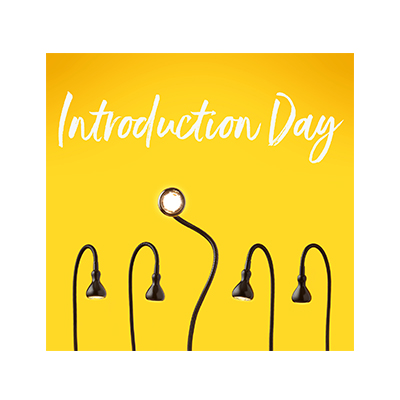 Understanding how the absence of a parent can still affect you as an adult is a common ‘a-ha!’ moment for many people who come on the Process. It’s easy to imagine that your mother or father have little influence if they weren’t there when you were young, but actually that void can set up all sorts of issues around how we relate to ourselves and others. Here, businesswoman Kim Murray shares her experience of dealing with her father’s suicide when she was only seven and explains how the Process became a bridge into a whole new career helping others through mindfulness and meditation.
Understanding how the absence of a parent can still affect you as an adult is a common ‘a-ha!’ moment for many people who come on the Process. It’s easy to imagine that your mother or father have little influence if they weren’t there when you were young, but actually that void can set up all sorts of issues around how we relate to ourselves and others. Here, businesswoman Kim Murray shares her experience of dealing with her father’s suicide when she was only seven and explains how the Process became a bridge into a whole new career helping others through mindfulness and meditation.
Mental Fitness – Emotional Resilience
Having pursued a career in Marketing & Events for over 11 years, I was accustomed to a high-pressure job. But in early 2016, a hugely stressful situation left me signed off work suffering from two things I’d never experienced before: anxiety and depression. This sharp decline was both out of character and completely debilitating.
In my search for solutions to how I was feeling, I saw the incredible results that Hoffman had brought for several close friends, so I decided to take the plunge and sign up.
The week-long retreat course put me back on track. It allowed me to unpack painful childhood baggage so that I no longer walked around with such a weight on my shoulders. It truly was a life-changing experience which helped me get over my anxiety and recover from depression.
When I was just 7 years old, my father very sadly took his own life. I was never really able to fully experience and integrate the emotions that I had at the time and I didn’t have the tools to do so whilst growing up. It was only during the course that I realised how much anger I’d locked inside me as a result. Processing that emotion and the death of my dad had an incredible effect on both my mental and physical well-being – incredibly curing the digestive problems I’d suffered from my whole life. It just shows the connection between a happy head and happy body.
Digesting Death
 I discovered that a parent who’s physically or emotionally absent, or who’s passed away when you’re young, can continue to impact you through to adulthood in ways that you’re completely unaware of. Suicide is unique because they ‘choose’ to leave. As a child it’s incredibly difficult to think otherwise. Your brain itself is still developing so you need to be given the space to process such a huge traumatic experience.
I discovered that a parent who’s physically or emotionally absent, or who’s passed away when you’re young, can continue to impact you through to adulthood in ways that you’re completely unaware of. Suicide is unique because they ‘choose’ to leave. As a child it’s incredibly difficult to think otherwise. Your brain itself is still developing so you need to be given the space to process such a huge traumatic experience.
During the Process I was finally able to completely forgive my Dad for ‘abandoning’ me. I could understand how he felt and re-connect with him in ways I never thought possible. Having lived a happy life myself until the age of 32, only to be suddenly ambushed by my own mental health issues, I can now better understand that suicide is incredibly complex, in the sense that the person doesn’t feel like they have any choice.
As I went through the course and experienced its many tools, the ones I found most insightful were the guided visualisations. Once home I also began to explore meditation and became more and more excited by the power of this ancient practice.
A Change of Career
The whole experience was so profound that, a few months later, I decided to quit my job, change career and retrain. I qualified as a meditation teacher and trained in Emotional Freedom Technique (also known as ‘tapping’) so that I could teach busy people how to stop, think and breathe. I wanted to help people avoid or escape the kind of stress-related situation I’d experienced and, because I’d found dealing with my childhood trauma so key, I wanted to offer meditation to children too. Within the space of a few months I launched Happy Heads, which does exactly that.
Every child is unique and, as a parent, we can’t stop ‘the world’ from happening around them. Over-exposure to technology and the modern pace of life is creating a society that has been dubbed ‘generation stress’. Add social pressure, stress at school, a traumatic event such as the loss of a parent or simply never being able to switch off and you can see why it’s never been so important to look after both our own and, most importantly our children’s, mental health.
My journey to the Hoffman Process ultimately began during my formative years, but only came to the surface in adulthood through stress in the workplace, which is why I want to help others avoid the same path. Your core beliefs develop in your formative years but they don’t have to be a negative blueprint that controls you.
Happy Heads
 My goal with Happy Heads is to empower people with simple mindful tools and techniques that build confidence, reduce anxiety and increase focus at work and in everyday life. I launched in April 2017 and have been working with a range of people from all walks of life whose feedback has made me proud to take this path. From sessions with the celebrated writer Benjamin Brook Dutton and his son Jackson, to teaching classes with companies Hey Holla and Moo, I’m taking positive steps to fulfil my mission of making every head a Happy Head.
My goal with Happy Heads is to empower people with simple mindful tools and techniques that build confidence, reduce anxiety and increase focus at work and in everyday life. I launched in April 2017 and have been working with a range of people from all walks of life whose feedback has made me proud to take this path. From sessions with the celebrated writer Benjamin Brook Dutton and his son Jackson, to teaching classes with companies Hey Holla and Moo, I’m taking positive steps to fulfil my mission of making every head a Happy Head.
For more information go to: www.happyheads.me
Interested in reading further? Kim’s recommended reading list for using mindfulness with children and how to deal with bereavement as a parent.
The Whole Brain Child by Daniel J Siegel is a book that offers children age-appropriate explanations and illustrations of how the brain works with strategies to help them to integrate their intellect and emotions.
Calm Kids: Help Children Relax with Mindful Activities by Lorraine Murray is designed to help children relax with mindful activities. Perfect for beginners and shows you how to create your own meditations.
It’s Not Raining, Daddy, It’s Happy by Benjamin Brooks-Dutton is a helpful and affirming true story about dealing with grief, sudden bereavement and life as a widower and a father






 Sign up to receive monthly newsletters from Hoffman
Sign up to receive monthly newsletters from Hoffman